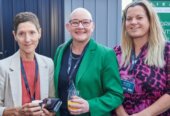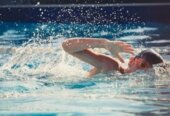Waipā’s new chief executive was greeted with a powhiri at Karāpiro on Monday, and it was down to business the following day with her first council meeting.
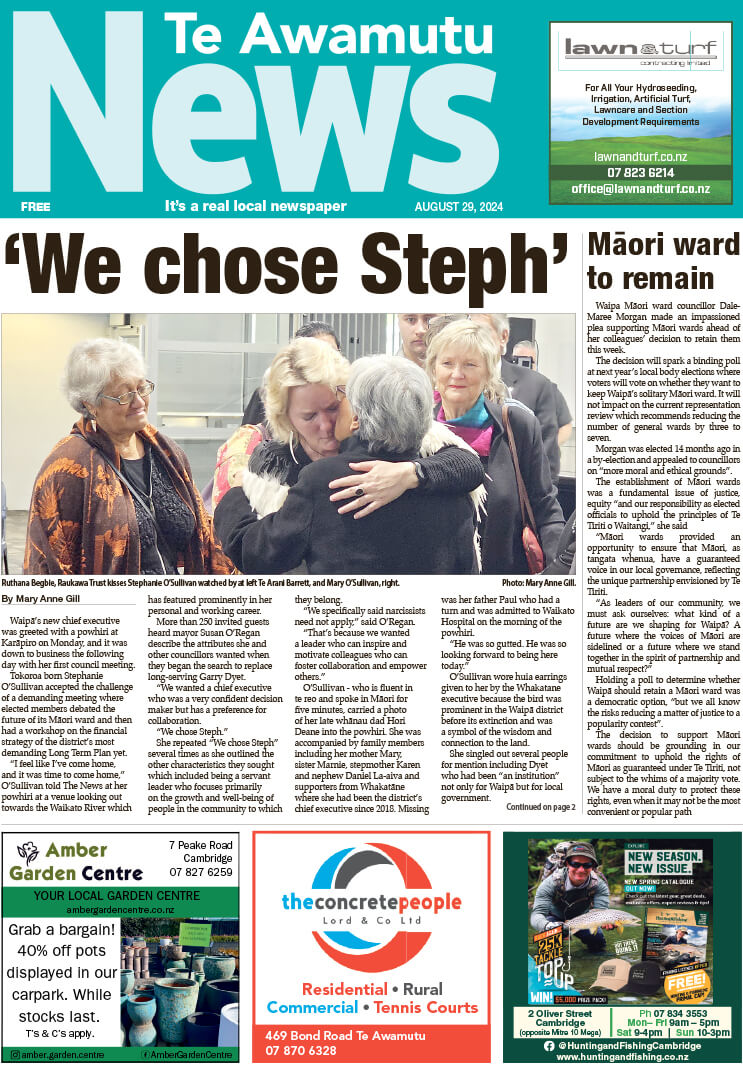
Te Awamutu News August 29, 2024
Tokoroa born Stephanie O’Sullivan accepted the challenge of a demanding meeting where elected members debated the future of its Māori ward and then had a workshop on the financial strategy of the district’s most demanding Long Term Plan yet.
“I feel like I’ve come home, and it was time to come home,” O’Sullivan told The News at her powhiri at a venue looking out towards the Waikato River which has featured prominently in her personal and working career.
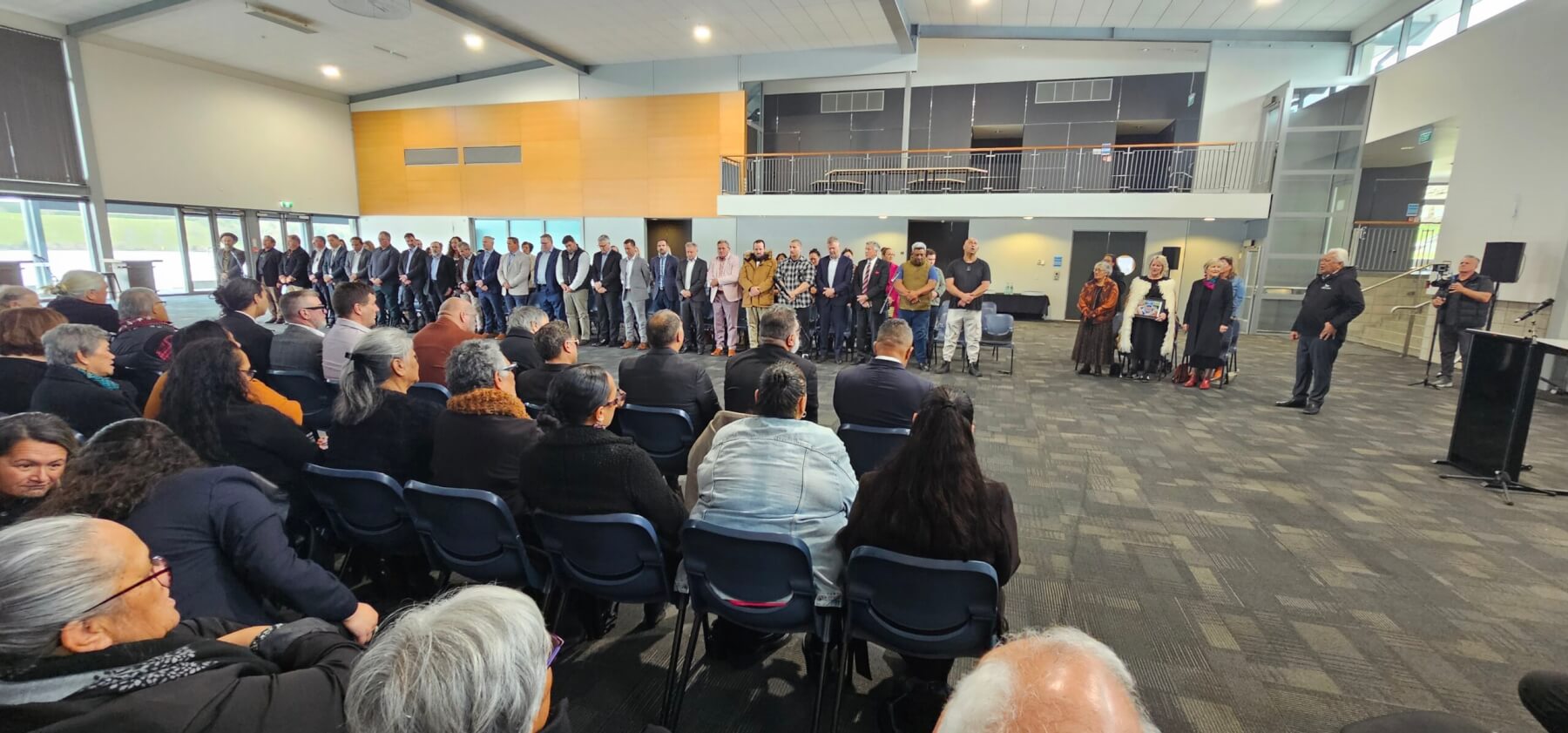
The crowd of about 250 at the powhiri for Stephanie O’Sullivan at Karāpiro’s Sir Don Rowlands Centre. Photo: Mary Anne Gill
The 118 invited guests and more than 50 students from Te Awamutu Intermediate’s kapa haka group, plus their whanau and supporters, heard mayor Susan O’Regan describe the attributes she and other councillors wanted when they began the search to replace long-serving Garry Dyet.
“We wanted a chief executive who was a very confident decision maker but has a preference for collaboration.”
“We chose Steph.”
She repeated “We chose Steph” several times as she outlined the other characteristics they sought which included being a servant leader who focuses primarily on the growth and well-being of people in the community to which they belong.
“We specifically said narcissists need not apply,” said O’Regan.
“That’s because we wanted a leader who can inspire and motivate colleagues who can foster collaboration and empower others.”
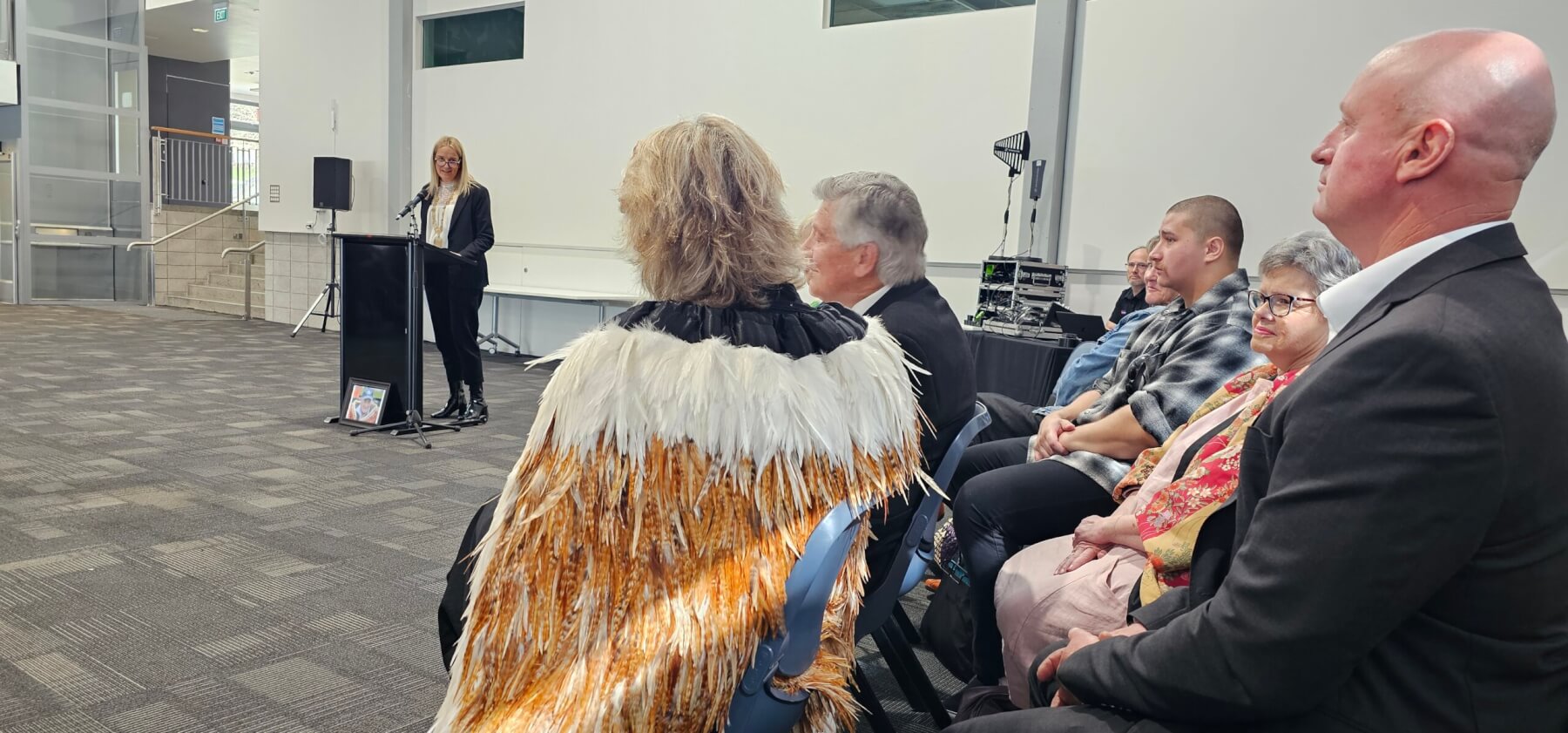
Waipa mayor Susan O’Regan looks across to new CEO Stephanie O’Sullivan and explains why “We chose Steph”.
O’Sullivan – who is fluent in te reo and spoke in Māori for five minutes, carried a photo of her late whānau dad Hori Deane into the powhiri. She was accompanied by family members including her mother Mary, sister Marnie, stepmother Karen and nephew Daniel La-aiva and supporters from Whakatāne where she had been the district’s chief executive since 2018. Missing was her father Paul who had a turn and was admitted to Waikato Hospital on the morning of the powhiri.
“He was so gutted. He was so looking forward to being here today.”
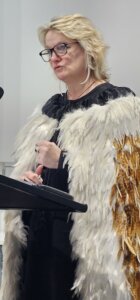
Stephanie O’Sullivan talks at her powhiri and wears huia earrings. Photo: Mary Anne Gill
O’Sullivan wore huia earrings given to her by the Whakatane executive because the bird was prominent in the Waipā district before its extinction and was a symbol of the wisdom and connection to the land.
She singled out several people for mention including Dyet who had been “an institution” not only for Waipā but for local government.
“He has been a mentor and a friend to me as well as a colleague and I wish to acknowledge him, his achievements and his dedication,” she said.
“I stand today by this beautiful river, humbled by its strength and beauty.”
O’Sullivan – who attended Forest View High School in Tokoroa and graduated from Massey University with a double major in planning and development studies – held numerous governance roles including the Waikato River Authority, Waikato River Trails Trust, Tauranga People’s Project and chaired the Advisory Board for the University of Waikato Adams High Performance Centre in Mount Maunganui.
“You know the saying when life gives you lemons, make lemonade?”
O’Sullivan went on to say she sustained a foot injury in June which resulted in her being on crutches for eight weeks and resting up rather than holidaying during the break in jobs.
She instead watched the Olympics and reflected on the Waipā district – the home of champions and high performance.
“What a joyous, momentous, amazing event and reflection of human endeavour.”
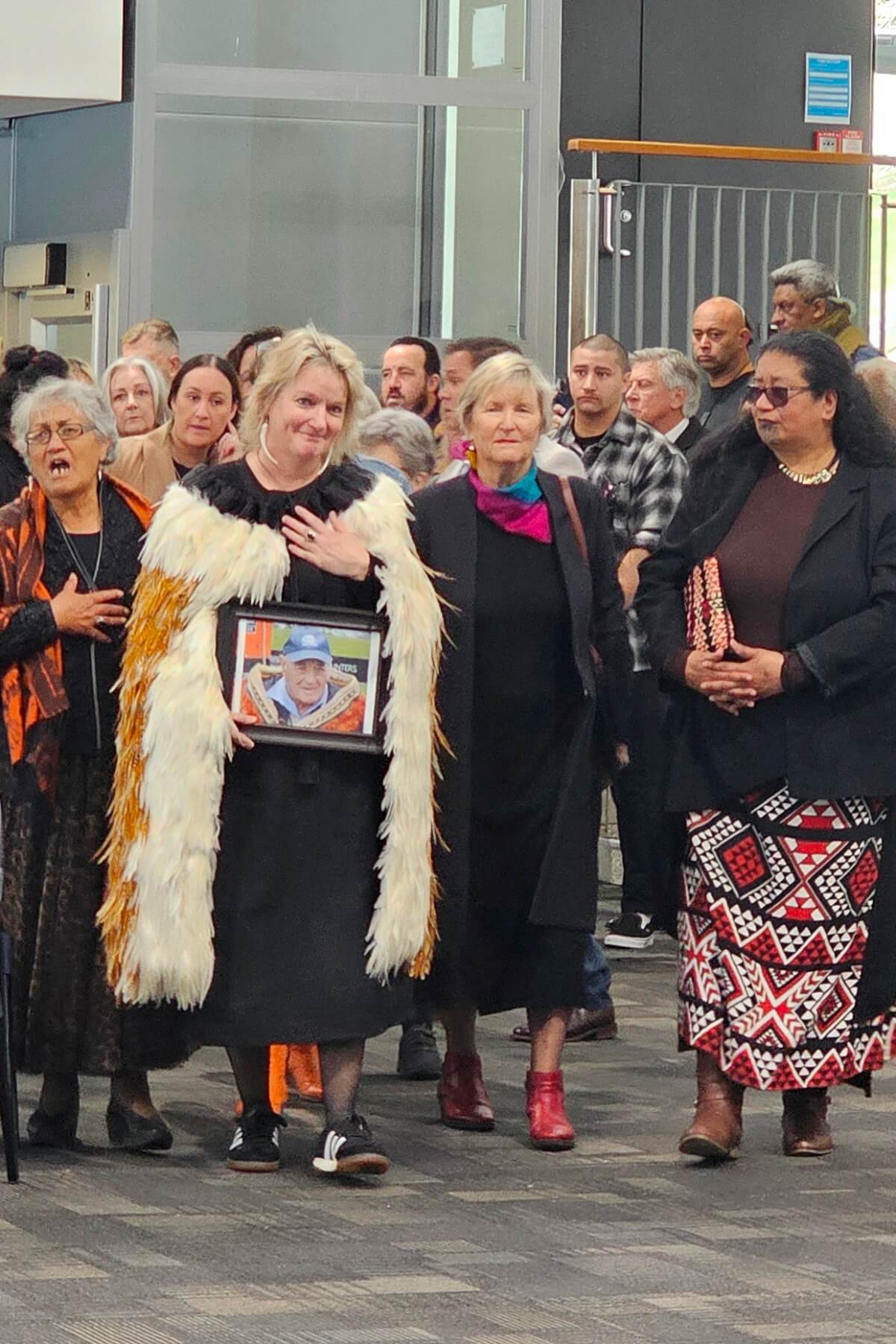
Te Arani Barrett, left, and Ngapera Rangiaho, right, flank new Waipā chief executive Stephanie O’Sullivan – who gestures towards mayor Susan O’Regan and deputy mayor Liz Stolwyk – and O’Sullivan’s mother Mary at the start of the powhiri. Photo: Mary Anne Gill.
Local government was more of a change event than a pinnacle event like the Olympics, but the emotions were similar, she said.
“Local government is in the business of 24/7 and 365 days a year delivery and it’s all out there for the world to see. Pretty much just like those athletes.”
Her role as chief executive was to make the community proud, to concentrate on performance, learning and leadership.
“And this is what excites me,” she said.
“We must get after those things that are important, continually moving in a direction, aiming higher, doing better.”
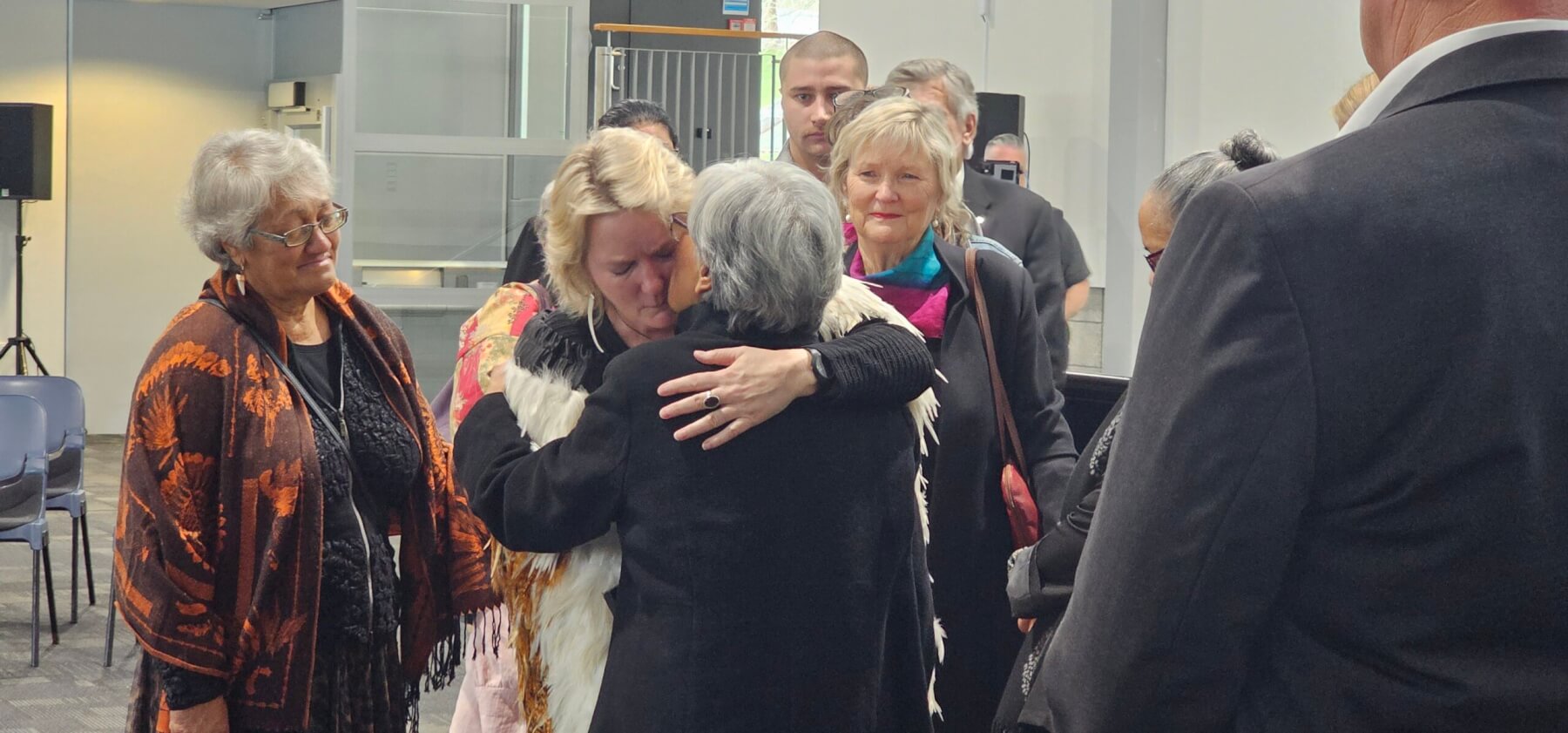
Ruthana Begbie, Raukawa Trust kisses an emotional Stephanie O’Sullivan watched by at left Te Arani Barrett, and Mary O’Sullivan, right. Photo: Mary Anne Gill
Afterwards she told The News the powhiri was a “beautiful and slightly overwhelming occasion.”
O’Sullivan revealed she was living in Cambridge and was a keen cyclist.
Local government was going through enormous changes, she said.
“Communities are different and unique and that’s the wonderful thing about being a leader in local government,” O’Sullivan said when asked what was different between Whakatāne and Waipā.
“You get to see communities express themselves in place. But I think there are some structural and system issues in local government that will need to change in years to come. And mayor Susan referred to that and it will be about local government standing up and showing that leadership itself and designing the future for local government.”
*An earlier version of this article said there were 250 invited guests. The News has clarified that to say there were 118 invited guests and more than 50 students from Te Awamutu Intermediate’s kapa haka group, plus their whanau and supporters. We estimated there were 250 people in attendance.
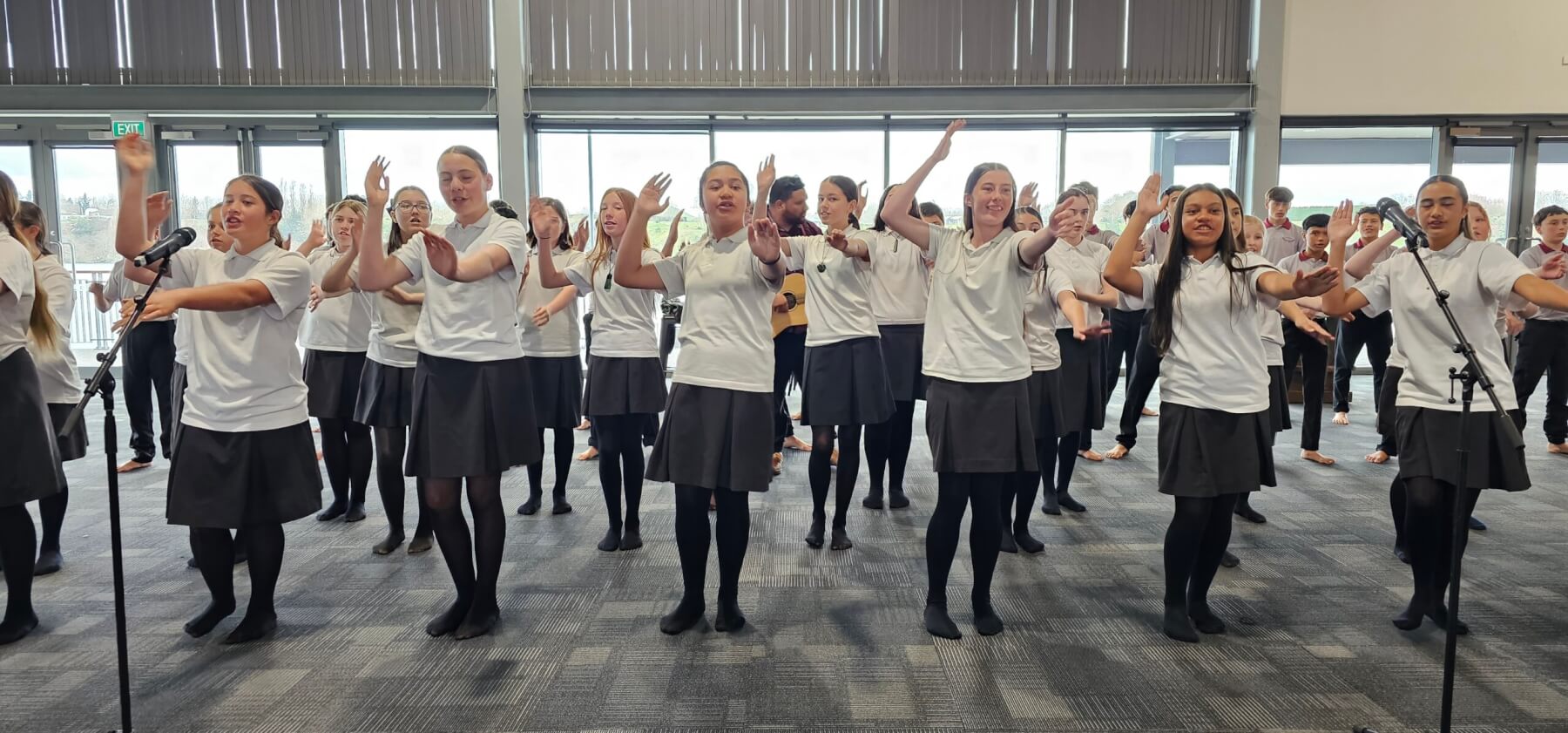
Te Awamutu Intermediate kapa haka, from left: Athena Kara, Arihia Toho-Knowles, Maraeroa Te Kanawa, Sohpi Muraahi. Photo: Mary Anne Gill
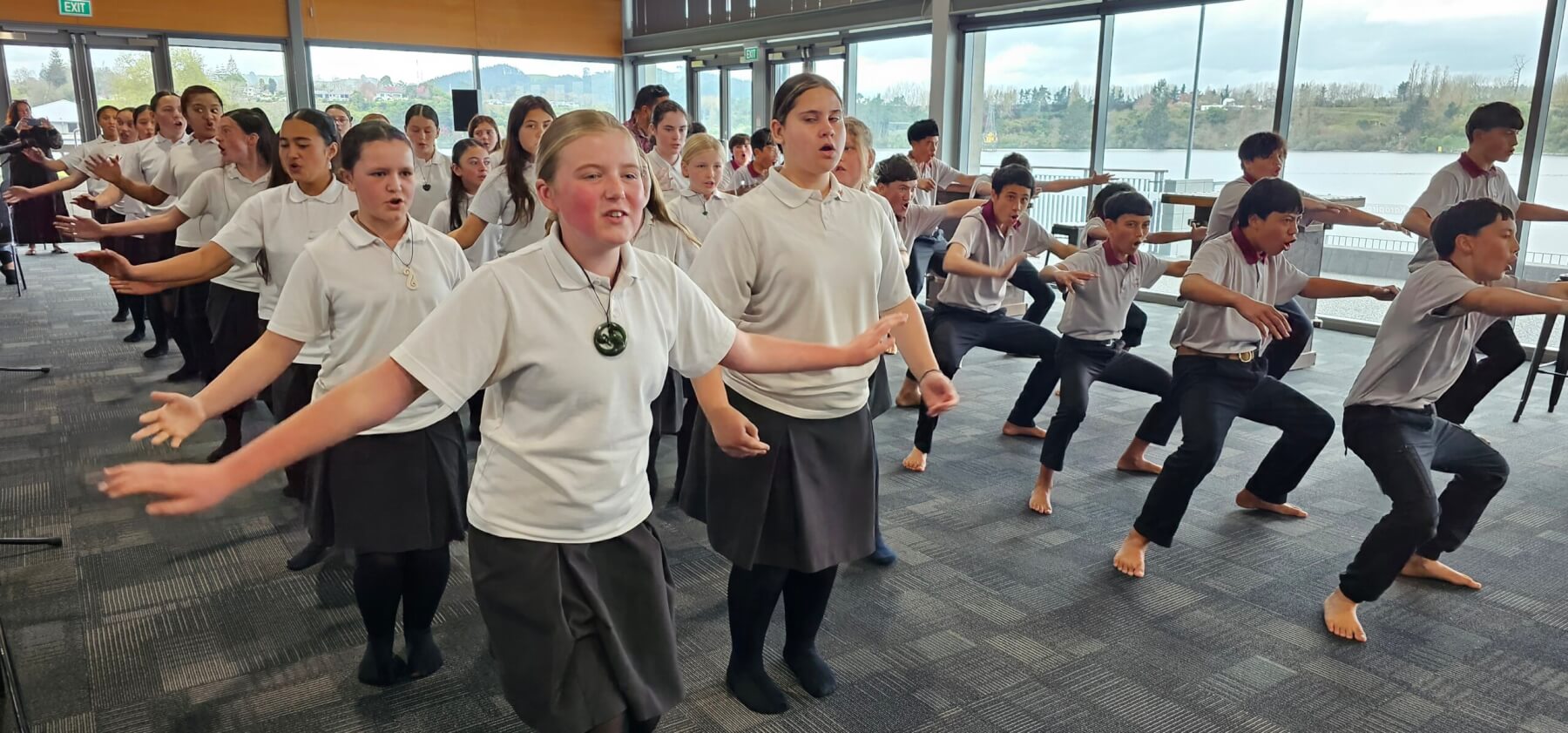
Te Awamutu Intermediate kapa haka, from left Kenzie Pivott, Zita Harpur and Alyssa Thomas. Photo: Mary Anne Gill
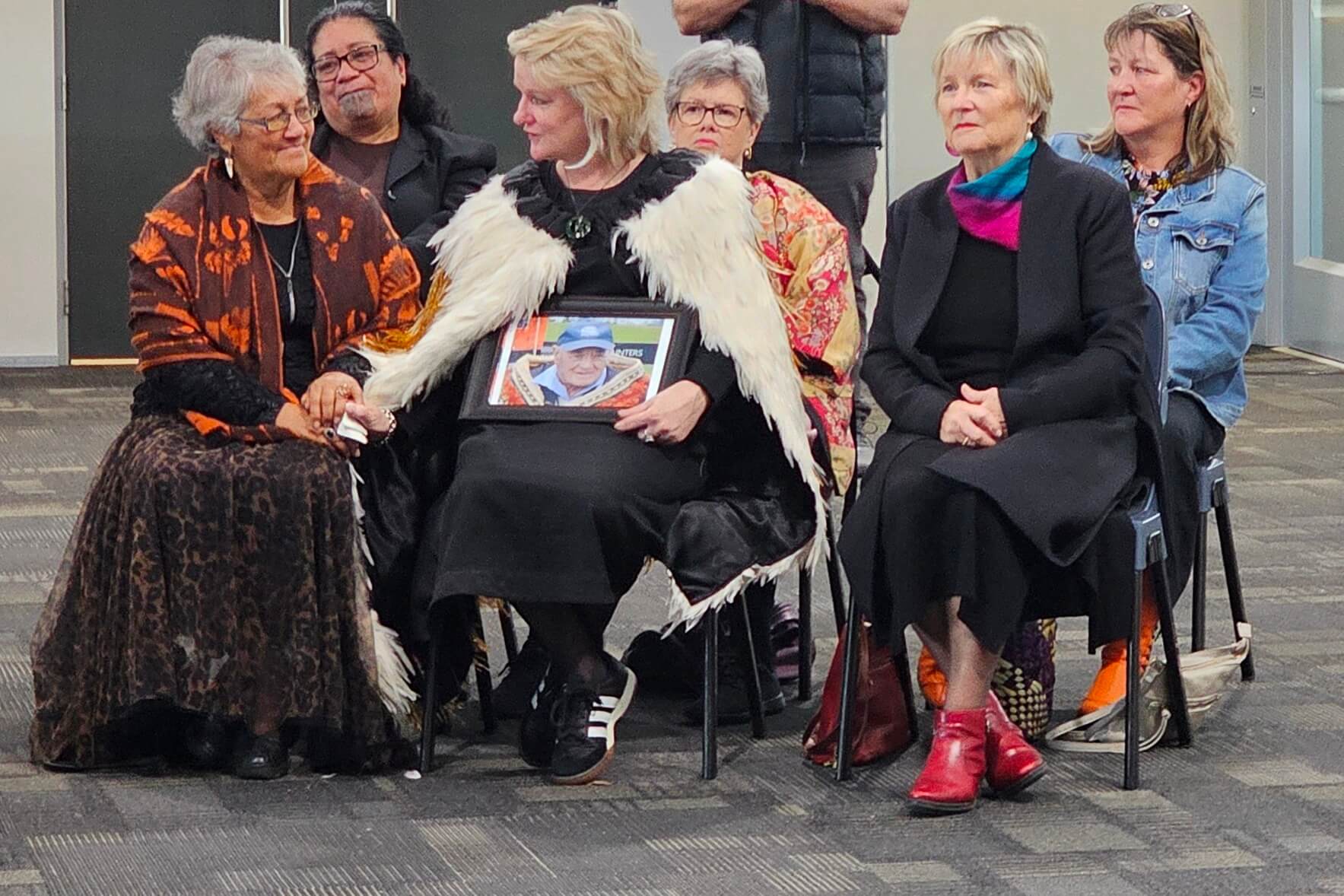
Whakatāne’s Te Arani Barrett, left, farewells Stephanie O’Sullivan – with a photo of her Māori koro the late Hori Deane – as she prepares to go to the Waipā side, with O’Sullivan’s mother Mary on the right. At the rear are, from left Ngapera Rangiaho, Karen O’Sullivan (stepmother) and Marnie O’Sullivan (sister). Photo: Mary Anne Gill.






